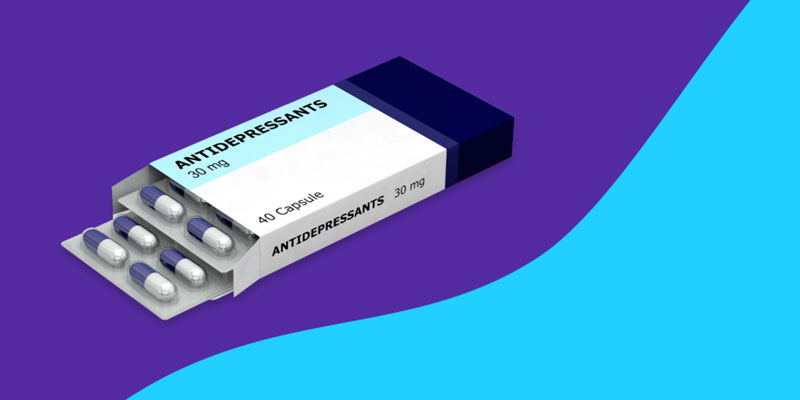Reasons to Switch or Adjust Your Antidepressant
Feb 06, 2024
Adjusting the dosage, adding a second medicine, or switching to a completely different medication are all potential options. Although finding the optimal combination may need some trial and error. You are not the only one if you and your physician feel that the amount of progress you've made while taking an antidepressant is not enough to be content with. At least half of the 4,000 depression patients who participated in the trial over three months did not get complete alleviation with the first antidepressant they took.

"Response" to an antidepressant, which denotes at least some improvement, and "remission," which means that the symptoms go away entirely, are two terms that medical professionals often use. Remission is an attainable goal for the vast majority of patients. If taking just one antidepressant isn't enough to lift your mood, your physician may suggest trying one of the other alternatives below.
Attempt to Achieve Remission
Psychiatrists speak of a patient having a "response" to an antidepressant, which implies that the patient has shown at least some improvement, and a "remission," which means that the patient's symptoms have diminished significantly or disappeared entirely. Remission is an attainable goal for the vast majority of patients. Your healthcare practitioner may investigate the following choices if a single antidepressant is not successful in treating your condition:
- Increasing the amount of the antidepressant that you are already taking in your system
- Maintaining the current dosage while also beginning treatment with a second medication, which might be another antidepressant as part of combination therapy or an entirely other class of drugs (augmentation therapy)
- Switching, which is gradually discontinuing the medicine you are now taking and beginning to take another one, is an option.
- You should begin the process if you are not currently participating in psychotherapy sessions.
Reasons to Make a Change
If you have only seen a marginal improvement in your symptoms, but the side effects are becoming intolerable, your healthcare professional may transfer you to an entirely different medication. Even if you aren't having any issues with the medication's adverse effects, your doctor may suggest that you make a complete switch if you aren't seeing much or any benefit from using it.

Reasons to Increase the Dose or Add Medication
If you are doing well with an antidepressant but there is space for improvement, raising the dose may be a good choice, particularly if you are not suffering any adverse effects from the current amount. The healthcare practitioner you see may prescribe another medication besides the one you're currently taking.
Alternatives for Increasing One's Productivity
Atypical antipsychotics are a class of drugs that are used in the treatment of schizophrenia and bipolar disorder. A psychiatrist's decision to prescribe an atypical antipsychotic to a patient depends on the patient's precise diagnosis and ability to tolerate the drug (quetiapine).
According to research published in PLoS Medicine in 2013, there is some evidence to indicate that these medications may increase the efficacy of antidepressants. Some of the medications in this category have been approved as add-on treatments for people who are already taking antidepressants. Zyprexa is explicitly approved for use in combination with Prozac.

Suicide Prevention Considerations
Patients who are taking antidepressants but wish to quit doing so should wean themselves off the medication gradually under the supervision of their primary care physician or psychiatrist. A report published in the year 2020 in the journal Psychiatric Review in Clinical Practice provided evidence of an upsurge in the number of people taking their own lives after the FDA issued a "black box" warning in 2003 on the link. The authors had a hunch that the cautionary note and the media attention surrounding the decision had the unintentional but negative effect of discouraging treatment, so they advocated for the cautionary note to be reworded and for additional forms of communication to reduce the impact of these factors.
Withdrawal Considerations
Antidepressants may cause some individuals to worry about becoming reliant on them. However, most people can stop taking them whenever they need to without experiencing withdrawal symptoms. Some of the medications in this category have been approved as add-on treatments for people who are already taking antidepressants. The use of antidepressants has been connected in the media to an increased risk of suicide, but the study indicates the medications may promote suicidal thoughts and ideas. No research has shown a connection between the drugs and the behavior itself. A much higher percentage of patient’s report having fewer thoughts about ending their lives due to treatment.





